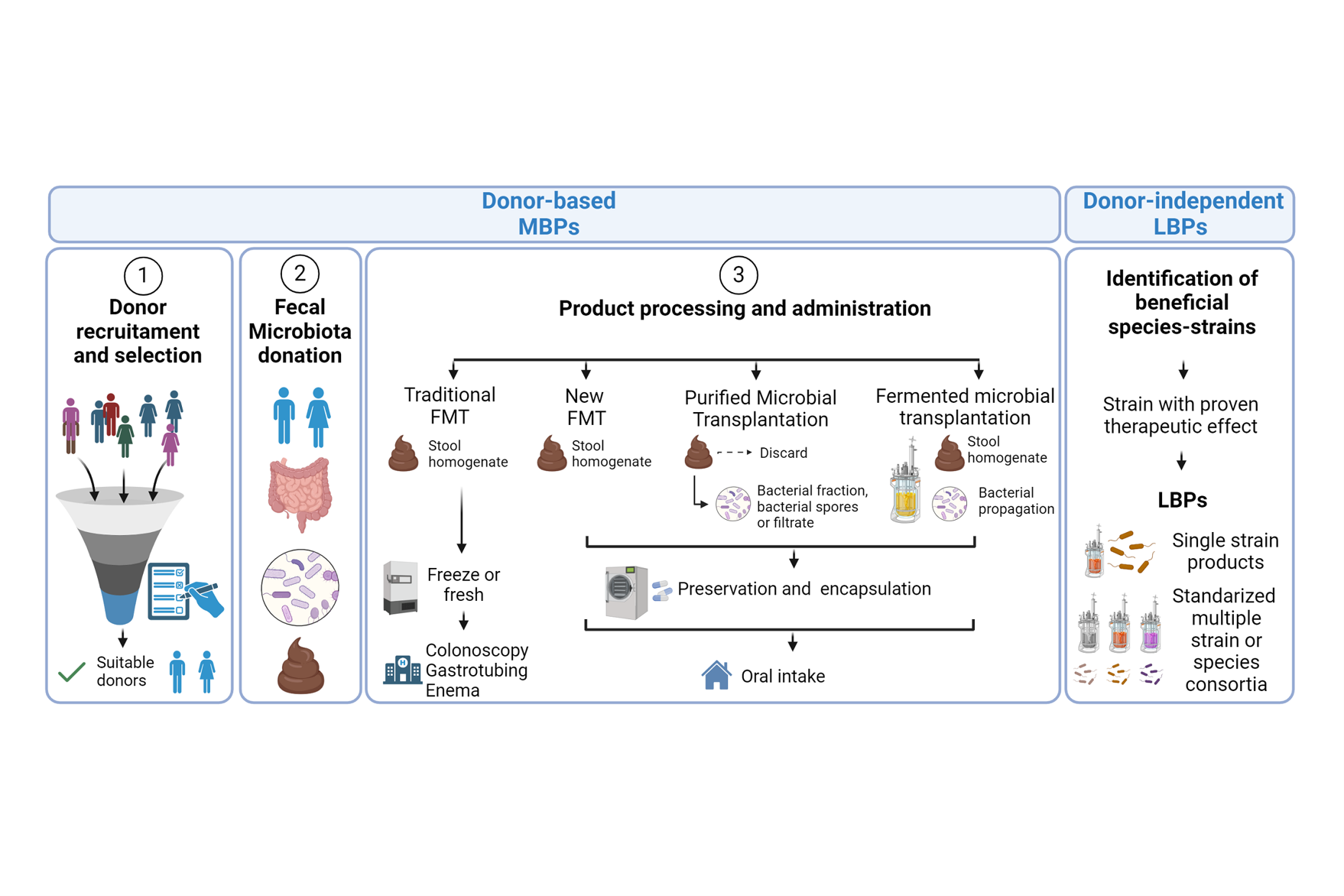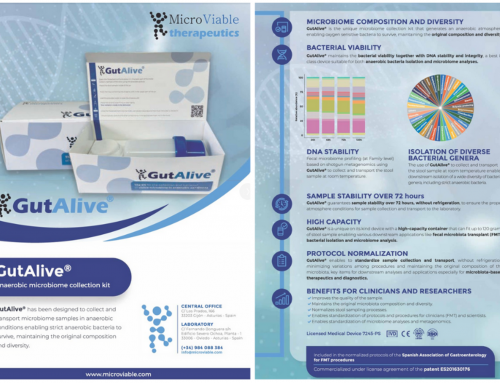Technological advances in studying the human microbiome in depth have enabled the identification of microbial signatures associated with health and disease. This confirms the crucial role of microbiota in maintaining homeostasis and the host health status. Nowadays, there are several ways to modulate the microbiota composition to effectively improve host health; therefore, the development of therapeutic treatments based on the gut microbiota is experiencing rapid growth. In this review, the Microviable researchers (Pilar Manrique , Ignacio Montero , Marta Fernandez-Gosende , Noelia Martinez , Claudio Hidalgo Cantabrana, David Rios-Covian) summarize the influence of the gut microbiota on the development of infectious disease and cancer, which are two of the main targets of microbiome-based therapies currently being developed.
They analyze the two-way interaction between the gut microbiota and traditional drugs in order to emphasize the influence of gut microbial composition on drug effectivity and treatment response. They also explore the different strategies currently available for modulating this ecosystem to our benefit, ranging from 1st generation intervention strategies to more complex 2nd generation microbiome-based therapies and their regulatory framework. Lastly, they finish with a quick overview of what we believe is the future of these strategies, that is 3rd generation microbiome-based therapies developed with the use of artificial intelligence (AI) algorithms.
You can read the complete review at “Past, present, and future of microbiome-based therapies” Microbiome Research Reports, OAE Publishing. Article by Pilar Manrique, Ignacio Montero, Marta Fernandez-Gosende, Noelia Martinez, Claudio Hidalgo Cantabrana and David Rios-Covian.




